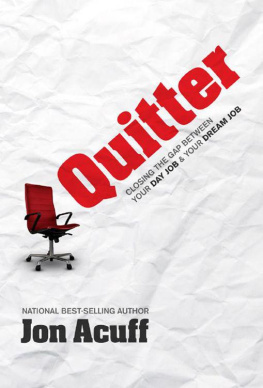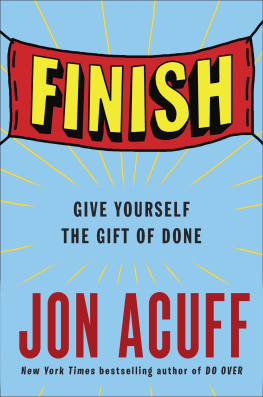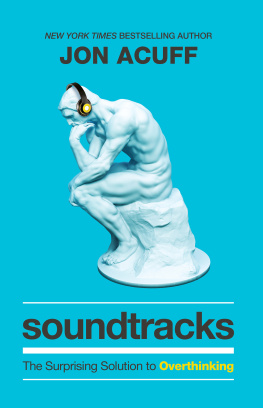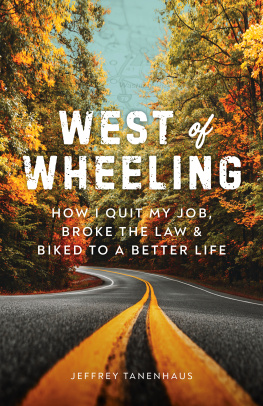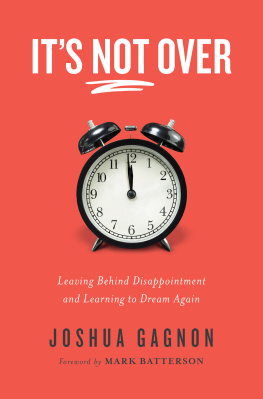L.E., my 7-year-old, Hmmm, how about, To Jenny, L.E., and McRae, the greatest family I could ever have.?
Perfect.
Contents
CHAPTER 1
Dont Quit Your Day Job
CHAPTER 2
Removing The Im From Your But
CHAPTER 3
What Lies Between a Day Job and a Dream Job
CHAPTER 4
Falling in Like With a Job You Dont Love
CHAPTER 5
Wait on the Main Stage
CHAPTER 6
There Will Be Hustle
CHAPTER 7
Learn to Be Successful at Success
CHAPTER 8
Quit Your Day Job
EPILOGUE
The Three Reasons Youll Ignore Everything You Just Read
CHAPTER 1
Dont Quit Your Day Job
The trick to removing your clothes in a bathroom stall is to start with your shirt. A lot of people will tell you to remove the pants first, but theyre wrong. If you go with the shirt, the person in the stall next to you has time to leave the bathroom on his own terms. If you go with the pants first, the pile falling to the ground assaults him. Falling pants one foot from your feet is traumatic at eight in the morning.
Everyone knows to test the door lock before removing any clothing, but lots of people forget the drop test on the door hook. As in, If I hang my bag and shirt on this, will it drop them to the floor, forcing me to light them on fire in my backyard? The hook is your best friend because its nearly impossible to balance something on the metal box that holds the toilet paper.
And lets not even talk about balancing your stuff on the back of the toilet. Asking a toilet to hold your shirt is expecting that piece of porcelain to perform a feat for which it was not designed. The shirt is going to slide off and wedge itself between the toilet and wall. That shirt is gone, and this isnt the Marines. You will leave a man behind. Always choose a stall by the hook strength it offers.
It took me awhile to glean these nuggets of bathroom wisdom. I had to learn by trial and error. You? Youve already benefited from my mistakes. Those insights alone are worth the price of this book. But Im sure you wonder why I have so much experience with stripping in a handicapped stall.
I was doing the reverse Superman.
For a few years I flew all over the country, speaking at weekend conferences. Saving lives, really. Then I would fly home through the night, ride the MARTA train to my office parking lot in Atlanta, grab a pair of khakis from my car, and head to the handicapped stall. No one suspected anything. I would then walk upstairs and disappear into a sea of cubicles, like Clark Kent at the Daily Planet.
I hated that.
I hated doing something I loved outside of work, feeling alive and engaged, only to have it all disappear the moment I walked through the door of my day job. I didnt hate the work per se. I liked my boss and the people I worked with. It wasnt that. I just hated that forty hours of my week didnt feel anything like the few hours of my weekend when life made sense.
I hated that my dreams had to go into hibernation every Monday morning. And so, like many other times in my life, I kept coming back to the same thought.
Its quitting time.
The culture of quitters welcomes you
There are two things I am better at than you.
The first is taking off my shoes at airport security. I dont care if you wear flip-flops and fly without a single thread of luggage, I am beating you at this game. I look at the security checkpoint like the corral gate at the rodeo. I consider removing my belt, shoes and laptop similar to the task of a bull rider roping a calf. As soon as Im done, I throw my hands in the air and breathe in my victory. If I had my way, youd be allowed to board the plane in the order that you removed your shoes. That would dramatically speed things up.
The other thing Im better at than you? Quitting jobs. I call scoreboard. My stats speak for themselves.
I held eight jobs in eight years from 1998, when I graduated from college, until 2006. These werent petty, part-time jobs, like that summer I was a mailman or that afternoon I spent as a carny.
The jobs I quit were 40-hour-a-week, 401(k)-offering, health-insurancetransferring, me-in-a-plain-colored-cubicle jobs. These were career jobs for most of my coworkers, and in a period of twelve years, I managed to quit six of the eight. Another I was fired from and the other went out of business.
I cultivated a high quality of quitting over those years. The first time, I took my boss out to dinner as if we were breaking up. It was amateur. It was also overkill. At no point should quitting a job involve fondue and soft candlelight. The second time, I was nervous and tossed a quitting grenade into a guy named Dereks office at Staples. I was an interactive copywriter but had been there for an eternity. A year. I saw Derek in his office with another guy named Thom. I approached the doorway and proclaimed, Derek, I need to give you my two weeks notice. Thom stared at me. I backed out and returned to my cubicle like I had just told Derek I needed more paper clips.
But by the last time I quit, I didnt have to say a word. My boss looked into my eyes and said, Wait. Jon, are you quitting? Thats how good I got. No two weeks notice needed. My dark mocha eyes did all the work.
I used to think I was unique, that perhaps I had a problem with staying at one job for a long time. It turns out I am extremely common. A recent survey revealed that 84 percent of employees plan to look for a new job this year.
Why?
We used to stay at jobs for decades. We got a gold watch for staying at a job for thirty years and then we retired to some flat, sweaty part of Florida to eat dinner at 4:30 in the afternoon. But somewhere along the way that changed.
At some point we stopped being stayers and formed a long line of leavers. We started seeing motion as a sign of success and transition as a sign of progress.

